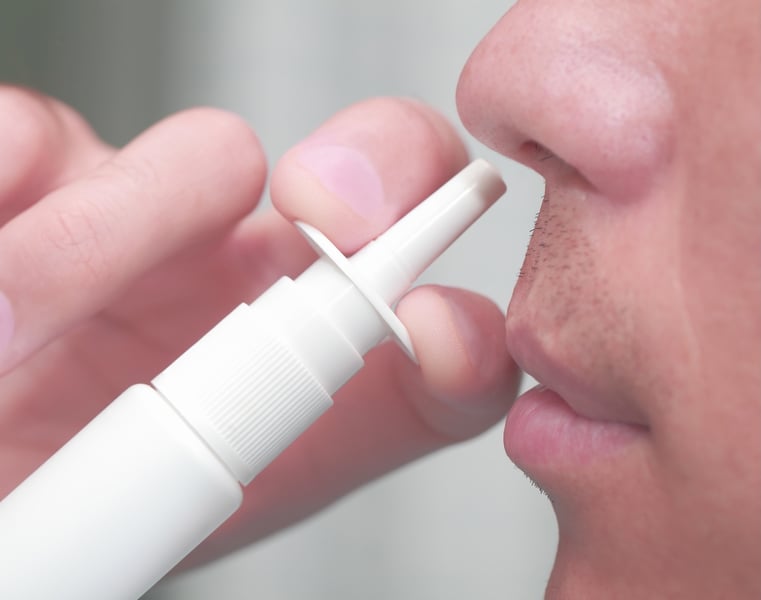Nasal Spray COVID Vaccine Shows Promise in Early Trial
By Cara Murez HealthDay Reporter | Copyright © 2022 HealthDay. All rights reserved.

WEDNESDAY, Oct. 11, 2023 (HealthDay News) -- New research points to the potential of a COVID-19 vaccine delivered through the nose.
The phase 1 clinical trial showed that the product, administered nasally in two doses, delivered a significant immune response to multiple COVID variants.
Called CoviLiv, the vaccine was tested as a primary vaccination series on healthy adults before development of the mRNA vaccines that are now approved to treat COVID.
Instead, CoviLiv is a live-attenuated vaccine, meaning it is made from weakened virus. Genetic material of the virus was recoded to convert it from a disease-causing pathogen into a stable and safe vaccine, according to its developer, Codagenix Inc.
Participants who received the vaccine during the trial had robust immune responses, according to a company news release about the study. They also had T-cell reactivity that was seen to be specific for multiple viral antigens beyond the frequently mutating coronavirus spike protein.
The idea was to produce an immune response to the entire virus rather than the frequently mutating spike protein. This could potentially provide broader protection against variants, the researchers said.
None of the current COVID vaccines are live-attenuated or delivered nasally.
The findings are to be presented Wednesday at IDWeek 2023, the joint annual meeting of several organizations, including the Infectious Disease Society of America, in Boston.
“The study findings provide a glimpse into what could be the next generation of COVID-19 vaccines that provide differentiated protection to more people,” said lead study author Johanna Kaufmann, executive vice president for oncology and immunology at Codagenix Inc.
“Vaccine administration by nose and easier storage can increase access to vaccinations for underserved areas across the world," she said in a meeting news release.
CoviLiv does not require cold chain storage, which would make it easier to stockpile in areas that don’t have enough refrigeration. Having an alternative to COVID shots may also increase uptake in areas with lower vaccination rates, according to the study.
Findings presented at medical meetings are considered preliminary until published in a peer-reviewed journal.
More information
The U.S. Centers for Disease Control and Prevention has more on COVID-19 vaccines.
SOURCE: IDWeek 2023, news release, Oct. 11, 2023




 Like the DIY idea of Dr. Leonardo websites, but just don’t want to Do-It-Yourself? We understand! Fussing over website details isn’t for everyone. But we do love building websites with our builder and we’re kind of obsessive about how we do things. Plus, we can build them lickety-split – typically in
Like the DIY idea of Dr. Leonardo websites, but just don’t want to Do-It-Yourself? We understand! Fussing over website details isn’t for everyone. But we do love building websites with our builder and we’re kind of obsessive about how we do things. Plus, we can build them lickety-split – typically in